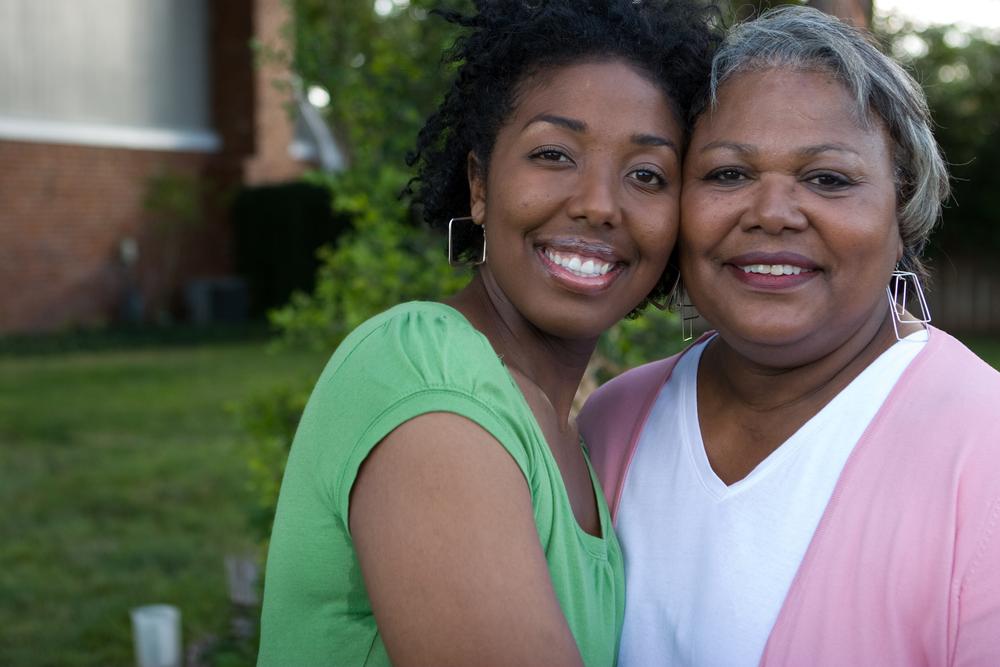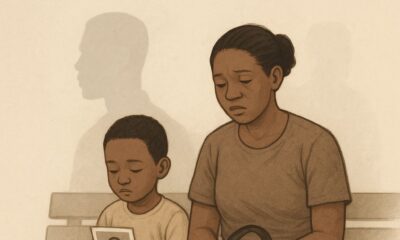Features
What’s The Opposite of Pride in Your Parents?
A lot of times, children want to love their parents genuinely and they want to be proud of them. But most times, they cannot help this feeling when it threatens to engulf them. There’s this guilt they feel when they are ashamed of their parents. They know it is wrong, but then, they cannot help it.
**
If you feel shame because your friends keep belittling your parents and comparing them to other parents, then you need to give yourself a knock on the head. The problem is not your parents, it is the kind of friends you have and the kind of information you consume. Change your circle.
 Young people have always fantasized about a perfect world – one where there is enough wealth to go round, where there’s so much love, where everyone is equal and all things are perfect.
Young people have always fantasized about a perfect world – one where there is enough wealth to go round, where there’s so much love, where everyone is equal and all things are perfect.
Kids want the good things of life. They want to eat cookies when they feel like, live in a mansion, have a play room with plenty toys, have enough food at home, a warm bed to sleep in, parents who were loving and caring, parents who could gaze into each others eyes in love, parents who were beautiful and had the perfect ‘slay’ sense, parents who were super intelligent and bold.
For kids, everything could be used as a point of pride: “My father makes the best jollof rice in the world”, “my house is bigger than yours”, “my mother is so intelligent, that is why she is the boss at work”, “my mother is so beautiful”. Kids get proud of their parents when everything is perfect and they are doing so well.
But life isn’t like that.
In most cases, life does not give us what we want. And life is never equal. The inability of kids to understand why their friend’s parents have certain things and theirs don’t is the breeding point of the resentment that rears its head in their minds.
We all have certain expectations of people – especially our parents who we expect should be have it all together. When they fall below expectations – especially in comparison with other parents, resentment and shame can begin to breed in us.
Kate’s (not real name) mum once shared how her kids – who were little and both in primary school – vehemently kicked against her following them to their end of year party. Why? Because she loved wearing buba and iro. Her daughter told her that other kid’s mums wore jeans and tops and looked more beautiful. She was shocked. One would begin to wonder how kids think of these things.
Patricia once threatened to stop her daughter from going to visit her aunt (Patricia’s sister) because every time the daughter came back from the ‘holiday’, she would look round the house and bitterly complain of how her parents had no centre table in the sitting room and how her aunt had a beautiful table and a bigger fridge.
While these can be excused because ‘kids will always be kids’, there are other issues that, as little as they seem, make children genuinely ashamed of their parents. These feeling are real.
Bunmi’s father was a policeman and whenever he left for work in the morning, he’d look so proud and smart. By dusk, Bunmi and her siblings would be dragging him out of the dirty gutter as their neighbours watched. Sometimes, children will gather around him, beating drums while he danced, displayed, and said a lot of incoherent things. In the community school, Bunmi was constantly bullied because she was the daughter of an-always-drunk policeman. She developed a resentment for her father. This later grew into hatred.
When, for the 100th time, the creditors came knocking, Tamuno ran under his bed and hid himself. His parents owed so much money that he felt dirty and stained. And when the creditors came to the house to rain curses on their debtors, he could swear that those curses glued to his skin like ticks and no amount of bathing could wash them off. He hated his parents and the way they borrowed.
The same thing for Junior who knew he came from a poor home. All his life, he’d lived in abject poverty and his parents couldn’t afford even the littlest things. He’d accepted this and made up his mind to work hard and break out of poverty. But when his mother visited his campus, unannounced, for the first time – her clothes extremely tattered, her shoulder blades very sharp, her eyes bulging in hunger, and her tiny frame swaying as she walked towards him, he prayed for the ground to open up and swallow them both. For the first time, he felt shame – hot and peppery in his chest. He couldn’t deny that she was his mother, neither could he look into his friend’s eyes as he introduced her.
A lot of times, children want to love their parents genuinely and they want to be proud of them. But most times, they cannot help this feeling when it threatens to engulf them. There’s this guilt they feel when they are ashamed of their parents. They know it is wrong, but then, they cannot help it.
It is the same with parents who are uneducated and cannot speak properly. You love them, yes, but you don’t want them to speak on your graduation day. Just because you’re scared of the laughter, jeers and yabis that will follow when they begin to ‘blow hefty gbagaun‘. You don’t want to invite your father to that ‘posh banquet’ because you’re scared he will eat rice with his hands or place his legs on the dining table.
Shame is a uniquely painful emotion. Even when you don’t want to feel it, it seeps into you – gradually and gradually until you can no longer tell when it consumes you. Shame comes at different levels and scenarios and the truth is that these feelings are valid. It also does not make you a bad child.
But you need to understand something. That our parent’s shame is not ours to bear. If you also had a better understanding of your parents and the many battles they have faced and conquered – or still facing – you will fling shame out the window. Just like you, your parents are not perfect. Change what you can, if you can and leave the rest. The burden of shame can weigh you down and cloud your mind in such a way that you never see the good side of your parents.
Shame robs you of the chance to give your parents a second chance, another try. Because, just like you, they are trying to be better and understand this thing called ‘life’.
If you feel shame because your friends keep belittling your parents and comparing them to other parents, then you need to give yourself a knock on the head. The problem is not your parents, it is the kind of friends you have and the kind of information you consume. Change your circle.
If your parents are doing certain things that you don’t like, perhaps it is time to have that family meeting where you table out your thoughts – in the most polite way, of course.
If there is anything you can’t change, then accept your ‘fate’ and find a way to remain sane. Our parents are not perfect and there are moments when we just feel like throwing them away. While your feelings are, to an extent, valid, they become harmful when you let them consume you. When you do not give your parents the chance to learn, grow and change.
Shame is too big a burden to bear.





















